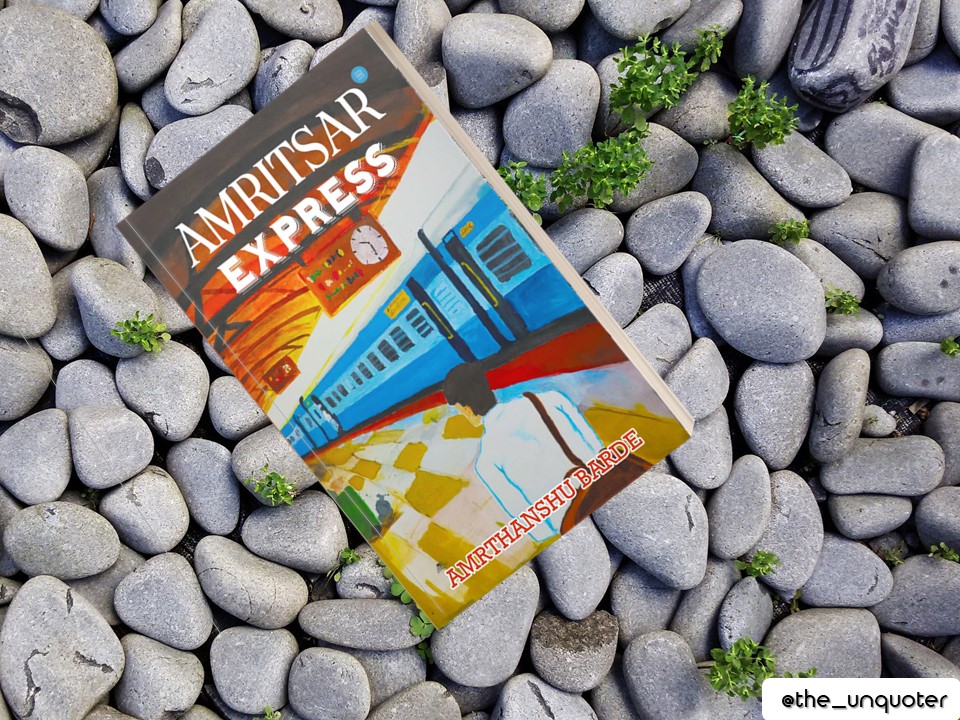Usage of the journey motif in narrating a tale is one of the ways to give human imagination the trigger in the right direction. Amrathanshu Barde, in his debut work, “Amritsar Express,” uses this motif at the right time to keep the readers connected with the narrative from the beginning. The journey factor is what attracts the readers instantly, and they are in the grip of the book the moment they start reading. The book may be providing ample hints to the relevance of the title from the start, yet the author makes sure it makes absolute sense only when the readers reach the last pages of the novel.
“Amritsar Express,” on the surface, seems to be a linear narrative told through the eyes of young Angad, but on reading between the lines, the readers would get to see the multiple themes that the author has attempted to explore in the more than 350 pages novel. While the dominant theme that pervades the canvas of the text is the twists and turns and the game of destiny where unexpected things happen at unforeseen junctures, the sub-themes include the portrayal of middle-class family life, human relationships, and their inbound complexities, the power of friendship, the discretion required in all stages, the importance of the ties that mould the life of a person, and difference of urban and suburban culture.
While Angad is portrayed in the most realistic form incarnating the basic human nature where there are swings of mood, anger, annoyance, frustration, sense of self-respect, tantrums on not getting things the way he wants; these are the characteristics that make him much more human, realistic and relatable for just any person. At the same time, some readers may not agree with the actions of Manpreet and the manner in which she handles things. The author shows her to be a passive receptor of things, but as Angad says, she is emotionless, and the readers ultimately agree more with Angad. Angad’s father has the features of any father who does want the best for his children, but the manner of showing his love is not much close to loving actions. Angad’s friend Ajay seems to be the one with the most sensibility and maturity among his friends.
Readers who are interested in picking up voluminous, bulky texts where the narrative develops at its own pace keeping the reader in tune due to the element of unpredictability, can pick “Amritsar Express” without any second thought. Other than the fluid language, the narrative moves just like Amritsar Express would.
Reviewed By: Akhila Saroha, The Literature Times



